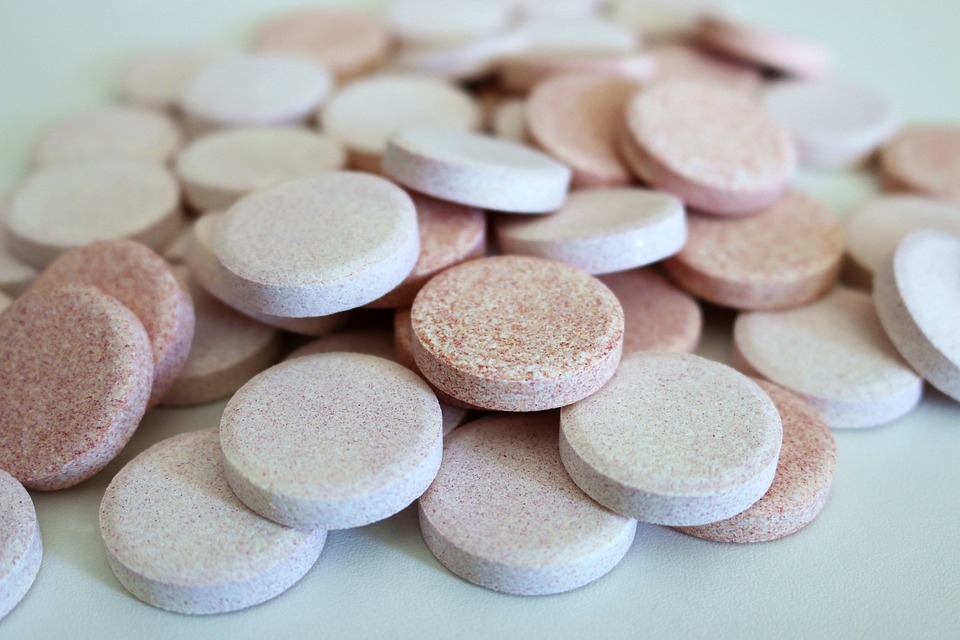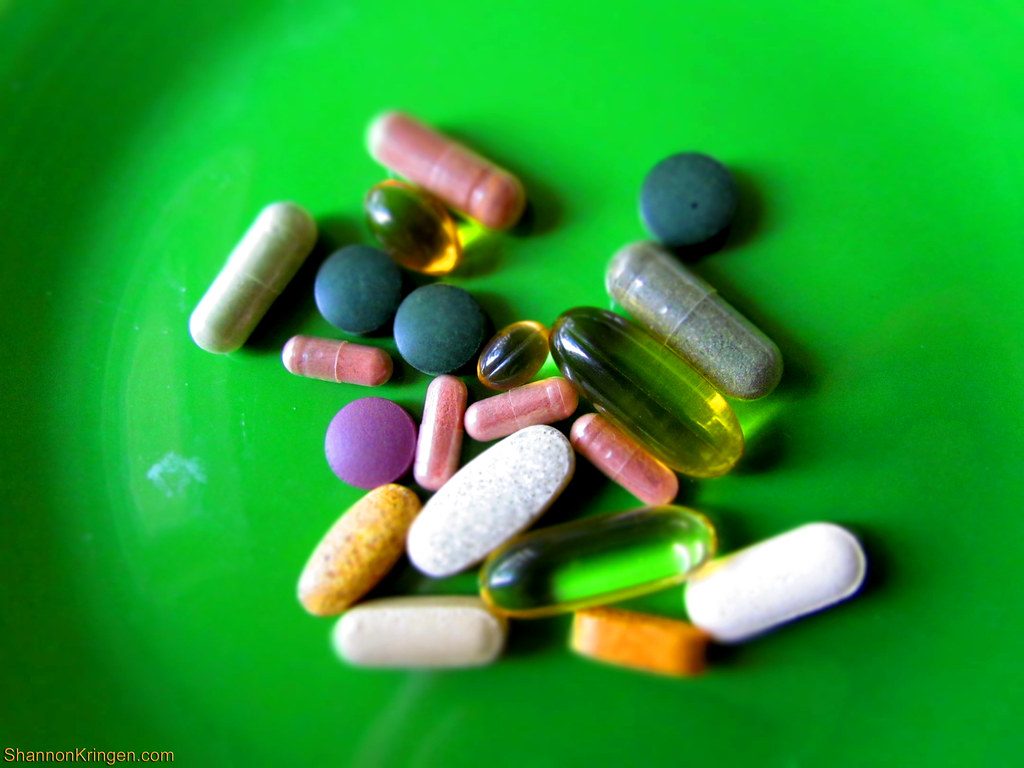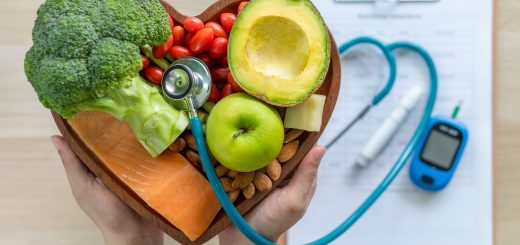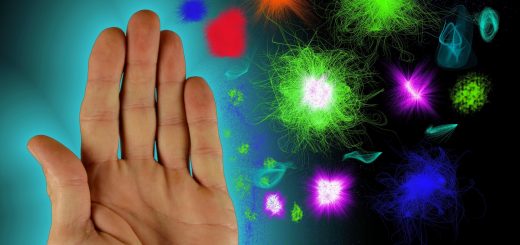What are Vitamins? (Part 1)
Vitamins are the essential nutrients that you get from your foods. They are crucial for maintaining your optimal health as your body needs them to perform specific and vital functions that we will go through in this post.
There are two different types of vitamins:
1. Water-soluble vitamins B-complex and C.
2. Fat-soluble vitamins: A, D, E, and K (which you can continue to read in Part 2 of this post)
What are water-soluble vitamins?

Water-soluble vitamins dissolve in water and are not stored by the body. They are withdrawn through urine, and we need to replenish vitamins through our daily food supply in our diet.
There are 8 water-soluble vitamins known as vitamin B-complex
- Thiamin (vitamin B1)
- Riboflavin (vitamin B2)
- Niacin (vitamin B3)
- Vitamin B6 (pyridoxine)
- Folate (folic acid)
- Vitamin B12,
- Biotin
- Pantothenic acid
They function as coenzymes helping your body obtain energy from food.
What is Thiamin
Thiamin or vitamin B1 releases energy from foods, promotes normal appetite and is important in maintaining The proper functioning of the nervous system.
Food sources for Thiamin: peas, pork, liver, legumes, whole grains and fortified grain products such as cereal, and enriched products like bread, pasta, rice, and tortillas.
What is Riboflavin
Riboflavin or vitamin B2 releases energy from foods, promotes good vision, and healthy skin. It also converts the amino acid tryptophan (which makes up protein) into niacin.
Food sources for riboflavin: liver, eggs, dark green vegetables, legumes, whole, and enriched grain products, and milk.
What is Niacin
Niacin or vitamin B3 helps in energy production, normal enzyme function, digestion, promoting normal appetite, healthy skin, and nerves.
Food sources for Niacin: liver, fish, poultry, meat, peanuts, whole, and enriched grain products.
What is Vitamin B6
Vitamin B6, also known as pyridoxine, pyridoxal or pyridoxamine, helps in protein metabolism and red blood cell formation. It is involved in the body’s production of insulin and hemoglobin.
Food sources for Vitamin B6: pork, meats, whole grains and cereals, legumes, and green, leafy vegetables.
What is Folate
Folate, also referred to as folic acid or folacin, helps in protein metabolism. Folate promotes red blood cell formation and lowers the risk for neural tube birth defects. Folate can also control homocysteine levels, which reduces the risk of coronary heart disease.
Food sources for folate: liver, kidney, dark green leafy vegetables, meats, fish, whole grains, fortified grains and cereals, legumes, and citrus fruits.
What is Vitamin B12
Also known as cobalamin, vitamin B12 participates in the building of genetic material, production of normal red blood cells, and maintenance of the nervous system.
Food sources for Vitamin B12
Vitamin B12 is found only in foods of animal origin such as meats, liver, kidney, fish, eggs, milk and milk products, oysters, shellfish.
What is Biotin
Biotin releases energy from carbohydrates and helps to metabolize fats, proteins, and carbohydrates from food.
Sources of Biotin: liver, kidney, egg yolk, milk, most fresh vegetables, yeast, and cereals. Biotin is also produced by your own intestinal bacteria.
What is Pantothenic Acid
Pantothenic Acid is concerned with your energy production while helping to form hormones and metabolize fats, proteins, and carbohydrates from food.
Sources for Pantothenic Acid: liver, kidney, meats, egg yolk, whole grains, and legumes. Pantothenic Acid is also produced by your own intestinal bacteria.
What is Vitamin C
Vitamin C, also known as ascorbic acid holds the cells in our body together through collagen synthesis. You need vitamin C in the process of bone and tooth formation, wound healing, improving immune system function, and acting as an antioxidant.
Common sources of vitamin C: citrus fruits such as orange, kiwi, lemon, guava, grapefruit, and vegetables such as broccoli, cauliflower, Brussel sprouts, and capsicums.
Now, let’s take a look at how do you prepare and store your water-soluble vitamins foods?
Water-soluble vitamins are quickly washed out during food storage or preparation. It would benefit you to know how to properly store and prepare your food so as to minimize vitamin loss. Take vitamin C for instance; you are wrongly squeezing an orange by letting most of the juice fall out. You then forget to keep your orange juice in a tight container in the fridge, and you leave it on the kitchen cabinet. Two hours later on, you come back to drink your orange juice. What happens here is that the vitamin deteriorates under light and you won’t be getting enough nutrients from your orange juice.

How to take water-soluble vitamins for the proper absorption
If you are confused about what vitamins to take and when to take them, talk with your physician. They will recommend you the best time to take them in case you are following treatment and already taking other medicines that may reduce their absorption.
Ideally, you should not take calcium with an iron-containing multivitamin or if you are taking magnesium at the same time because your body might not absorb it well.
You don’t need to take multi-vitamins with a meal as they are water-soluble and will get digest easily with water itself.
Vitamin C is commonly taken in the morning as it is believed to boost your immune function.
To kick start your day, take a B vitamin on an empty stomach when you wake up in the morning. B vitamins are energy-boosting and stress-busting, they will keep you alert throughout the day. However, Vitamin B3 (niacin) may be better when taken in the evening, close to bedtime. It will induce a good night’s sleep and recovery.




7 Responses
[…] What are Vitamins? (Part 1) […]
[…] What are Vitamins? (Part 1) […]
[…] fruits and vegetables (vitamins, minerals, and trace […]
[…] What are Vitamins? […]
[…] – What are Vitamins? […]
[…] – What are Vitamins; […]
[…] There are two different types of vitamins: 1. Water-soluble vitamins B-complex and C. 2. Fat-soluble… […]